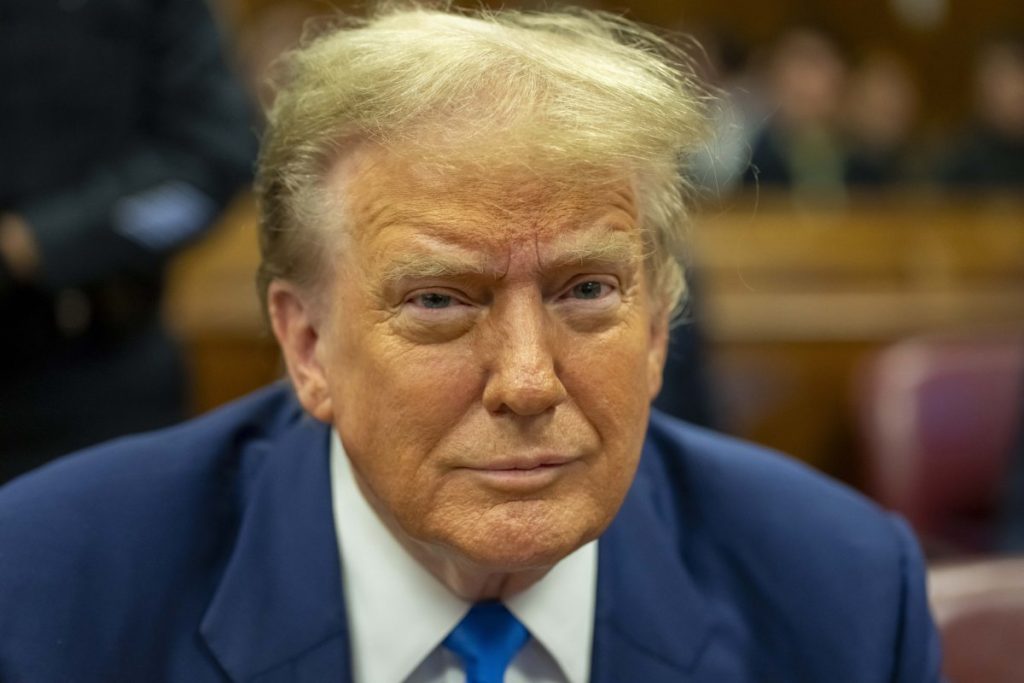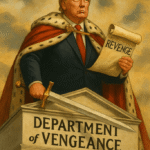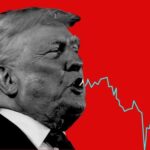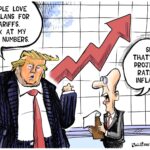Trump Delay: Supreme Court’s Inaction and Its Impact
Americans want to know whether former President Donald Trump is a convict before they vote. But the Supreme Court, supposed to be our ultimate recourse for unbiased justice—apparently doesn’t want us to have the answer. continuing the pattern of Trump Delay.
The Supreme Court and Trump Delay in Justice
Recent oral arguments before the court on whether Trump is absolutely immune from federal and state criminal charges showcased its complicity in delaying Special Counsel Jack Smith’s criminal prosecution of Trump for illegally trying to hold onto power after he lost the 2020 election. The Supreme Court’s actions can effectively put Trump’s trial off until after the 2024 election.
Trump Delay: Comparing Past Court Decisions
This is egregious. It took the court just 16 days to decide Nixon wasn’t immune from prosecution in Nixon v. the United States, and one day to decide Bush v. Gore. It took Trump’s defense team just 21 days to get a judge to hear its motion to disqualify Fani Willis from prosecuting Trump for his attempts to overturn the 2020 election. Trump lost that round and (of course) appealed, further delaying the proceedings against him.
The Extended Trump Delay: Federal Criminal Trials
As of this writing, years after the actions for which he was finally indicted, no federal criminal trial of Trump has a firm date. The endless delay smacks of deferential, preferential treatment from the justices, three of whom Trump nominated.
Supreme Court’s Role in Trump Delay
It was baffling enough that the court agreed to hear Trump’s specious immunity claim in the first place—clearly presidents can’t be absolutely immune from prosecution. That put Trump’s trial on hold for months. But during the recent oral arguments, justices again dumfounded legal experts by indicating they would delay his trial further. They signaled intent to send it back to the District Court to decide the self-evident question of whether it’s within Trump’s official presidential duties to obstruct the transfer of power, steal and hide classified documents, organize and submit false elector certificates to Congress, enlist the vice president to change election results, and foment violence at the Capitol. Meanwhile the Supreme Court continues to pause Trump’s trial in the case Smith brought against him until it decides the immunity issue, likely in late June.
Trump Delay: Procedural Maneuvers and Their Effects
The eventual rulings are foregone conclusions. Trump won’t be found to be immune, and the abuses of power he’s accused of won’t be found to be part of his official duties. But that isn’t the point. The point is, if his trials can get delayed procedurally long enough, Americans will not know if he will be convicted before they vote. And if that ambiguity helps him get reelected, they will never know. As president he would undoubtedly try to pardon himself or appoint an attorney general who dismisses the cases against him.
Trump Delay in DOJ Investigations
The Supreme Court is not the only part of the judiciary contributing to Trump’s delaying tactics. The Department of Justice began its investigation on Jan. 7, 2021, but it took a year and three months to expand it to Trump, and another 234 days to appoint Smith to take over the investigations of Trump. In early September 2022, a federal grand jury subpoenaed former Trump Chief of Staff Mark Meadows and more than 30 other former Trump aides to testify. Trump’s team soon filed a motion to ban the testimony, claiming executive privilege. The claim was preposterous, but it still took until March 24, 2023, for it to be denied, delaying the proceedings six months.
Impact of Trump Delay on Legal Proceedings
In all, since the DOJ investigation began, it took 876 days to indict Trump in the classified documents case, 883 days in the federal election interference case, and 950 days in the Fulton County election interference case.
Trump Delay and Its Effects on the Trial Process
On July 27, a grand jury finally indicted Trump for illegally taking and hiding classified documents. The case was assigned to Judge Aileen Cannon, a Trump appointee widely criticized for assisting him in delaying trial.
On Sept. 1, 2022, she granted Trump’s request for a court-appointed special master to review the documents taken in the FBI‘s Mar-a-Lago raid. Her ruling was flawed and predictably overturned on Dec. 1, 2022. But the gambit added three months of delay—that much closer to the August 2024 trial date Trump proposed, which is part of his strategy to tie up his legal calendar, bumping Jack Smith’s 2020 election interference trial until after the 2024 election.
Legal Tactics and Trump Delay
Trump’s arguments for delay are clearly frivolous and without merit. For example, he claims acquittal in two impeachment trials grants him immunity from prosecution. But Article 1, Section 3 of the Constitution expressly provides that an official acquitted or convicted in an impeachment trial shall nevertheless be liable and subject to indictment, trial, judgment, and punishment, according to the law.
[ruby_related heading=”More Read” total=5 layout=1 offset=5]
Frivolous Claims and Trump Delay
Trump’s lawyers brashly argue that criminal statutes do not apply to presidents unless they expressly include them. What about murder, drug trafficking, or bribery? Statutes making them crimes don’t expressly name the president, so are presidents immune from prosecution for committing them? Obviously not. Laws against bribery, at least, have been explicitly construed by the Justice Department to apply to the president.
Urgent Need to Address Trump Delay
These are just frivolous legal filings are all designed to seek undue delay. When a defendant and his attorneys use such tactics, they are subject to sanctions. Trump’s attorneys can and should be assessed fines to recoup the prosecutions’ costs arising from their frivolous claims. Trump should also be fined for his active role in seeking undue delay. Courts are hesitant to impose such sanctions because they can discourage zealous advocacy. But they are appropriate in this case.
Conclusion: The Impact of Trump Delay on Democracy
Delaying Trump’s trials until after the election effectively puts him above the law, endangering the foundations of democracy. The Supreme Court has set the stage for this tragedy. The least it can do now is lift the stay of Jack Smith’s prosecution of Trump and take the brakes off the wheels of justice. It may be too late to restore America’s deeply eroded confidence in the Court. But if it acts now to let Trump’s trial resume, it’s not too late to at least allow Americans to know whether they’re voting for a convicted criminal in November.








Your point of view caught my eye and was very interesting. Thanks. I have a question for you.
Thanks for sharing. I read many of your blog posts, cool, your blog is very good. https://accounts.binance.com/es/register?ref=T7KCZASX
Your point of view caught my eye and was very interesting. Thanks. I have a question for you.